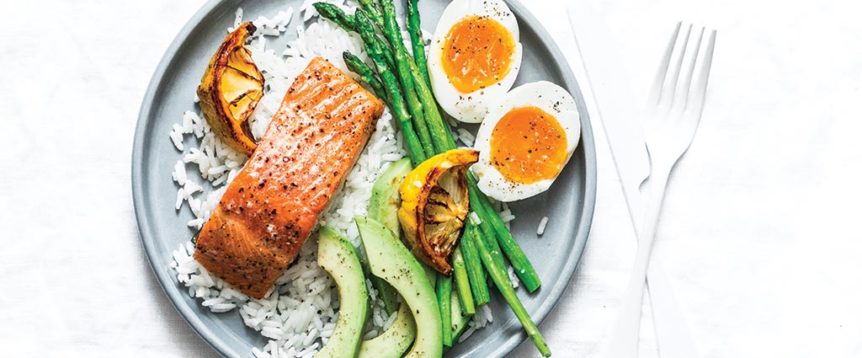Dieting: It’s an obsession for many. Close to 70 percent of people in the U.S. have dieted at some point in their lives. Yet studies show that 90 percent of those who lose weight regain some or all of it within five years. In her new book Anti-Diet (Little, Brown Spark, 2019), Christy Harrison, R.D., and voice of the Food Psych podcast, exposes the problem: our toxic diet culture. The solution? Practicing intuitive eating. We caught up with Harrison to learn more.
What inspired you to write Anti-Diet?
My work in the field of disordered eating—with people with eating disorders and suffering with food relationships—made me aware of intuitive eating, which is a gold standard for treating these issues and actually how we’re born to eat. But 75 percent of U.S. women ages 25 to 45 have some form of disordered eating.
I struggled with disordered eating in my late 20s, when I was a health and wellness journalist. I became obsessed with food, while also struggling with weight loss and trying to eat healthy. When I became a dietitian and started working with clients, I became curious about what leads people down the road to weight loss and healthy eating.
It’s a cultural pressure to be thin and healthy—it’s our diet culture. And a lot of people unfortunately fall down the diet culture rabbit hole.
What is “diet culture”?
It’s a system of beliefs that equates thinness, muscularity and particular body shapes with health and moral virtue; promotes weight loss and body reshaping as a means of attaining higher status; demonizes certain foods—like gluten, carbohydrates and inflammatory foods—while elevating others; and oppresses people who don’t match its supposed picture of health.
When most of us think of “diet,” we relate it to food and reclaiming our bodies. But your book addresses reclaiming time, money, well-being and happiness. Tell us more.
Disordered eating and our diet culture steals our lives by making us do things that are a waste of time, like shrinking our bodies and trying to eat perfectly. It steals money we spend on weight-loss programs and products. It causes mental distress called orthorexia, an obsession to eat healthy. It robs us of our autonomy and confidence in making food choices, which affects our happiness and well-being.
When we transition away from the diet culture to more intuitive eating, we can reclaim all of these aspects of our lives.
How can we practice intuitive eating?
Intuitive eaters experience more pleasure than people who are “trying” to eat healthy. Babies are the prime example of intuitive eaters. They angle to eat when hungry, they know what satisfies them and turn their heads away from what they don’t like. Unfortunately, many of us have difficult relationships with food. We struggle with our weight and deprive ourselves, yet constantly think about food. We need to get back to the mode we were all born with.
Start by working to reject diet mentality; it’s the first principle of intuitive eating—and it’s the hardest to do. We’ve been conditioned to outsmart our hunger; we need to unlearn this and tune in and feed ourselves.
Challenge your perceived beliefs about food and dieting. Ask yourself: “Where did I get this belief? Do I want to choose to believe that anymore? Did that diet work for me long term? Did it result in mental distress or more bingeing? What have I been restricting myself from eating?” Then give yourself permission to eat. Practice, and learn to trust this.
In the beginning, you’ll crave more of what you’ve deprived yourself of. But eventually, if you can give yourself permission to eat whatever you want, those cravings won’t be quite as intense. You’ll want other things and a greater variety. It’s about honoring your hunger.


